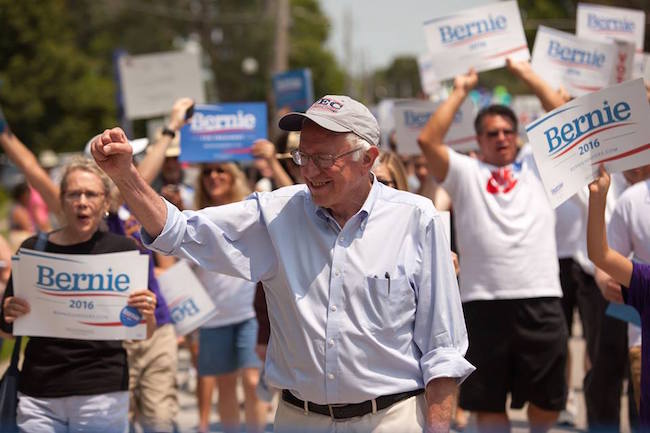By Fairooz Adams

Robert Strauss, former democratic chairman, once said, “Every politician wants you to believe he was born in a log cabin he built himself… it ain’t so.”
While this may not be true for all politicians, Bernie Sanders comes as close as possible to fitting that mold. Sanders is currently the runner-up in polls behind Hillary Clinton for the Democratic presidential nomination.
Born on September 8, 1941 to Jewish parents in Brooklyn, N.Y., Sanders came from a working class family. Even after having graduated from the prestigious University of Chicago, Sanders was employed in working class jobs. A socialist, Bernie Sanders ran for the Vermont governorship and the United States Senate unsuccessfully under the Liberty Union Party. Sanders grew increasingly disaffected by the lofty goals and proposals of socialist academia, and he left the Liberty Union Party in 1976.
After his departure, Bernie Sanders ran for mayor of Burlington, Vt. as an Independent in 1981. In an enormous surprise, Sanders won by a razor thin margin.
As mayor of Burlington, he took an international approach. He invited the wife of François Mitterrand, then the President of France and a member of the Socialist Party, to speak to the Burlington citizens. Sanders expressed support for the Sandinista government in Nicaragua and even visited the country.
In 1988, Sanders travelled with his wife Jane to the Soviet Union for their honeymoon where he was also able to study the Soviet economic system up close. Sanders discovered that while prices in the USSR were far more affordable than in the U.S., the quality of goods and services in the country were significantly lower. In 1990, Sanders became the sole United States representative from Vermont. During his time as a congressman, he voted against the Brady Bill, against the USA PATRIOT Act, and the Iraq War. While staunchly liberal on virtually all issues, he is soft on gun control compared to other democrats, perhaps because Vermont is a mostly rural state with a strong gun culture.
Sanders is more moderate today than he was during some of his earlier campaigns. He describes himself as a “democratic socialist,” though to be exact he is more of a social democrat, like those found in social democratic countries in Europe. Despite his more moderate approach, many of his campaigns’ major themes from that time period are still with him today, with income inequality and the outsize influence of money in politics being chief among them.
Sanders was elected to the United States Senate in 2006 as an Independent, though he received endorsement from several Democrats from the party’s leadership.
Despite being a candidate for the Democratic Party’s presidential nomination in 2016, Sanders has been critical of the party for quite some time, because he sees both of America’s major parties as beholden to corporations.
His surge in the polls has echoes of Obama’s upset victory over Hillary Clinton in 2008. Whether he can pull off what Obama achieved in 2008 is another question. Obama’s inclusive rhetoric from 2008 is different from Sanders’ oftentimes incendiary rhetoric.
Clinton has learned from many of her mistakes in the 2008 race and has attempted to lock up the support of superdelegates as well as the Democratic establishment. Clinton has a commanding demographic advantage with minority voters.
Sanders’ surge is a product of frustration from liberals who believe the president, while meaning well, has not been able to do nearly enough. In a sense, the clamor for Sanders is for an Obama that never was.








